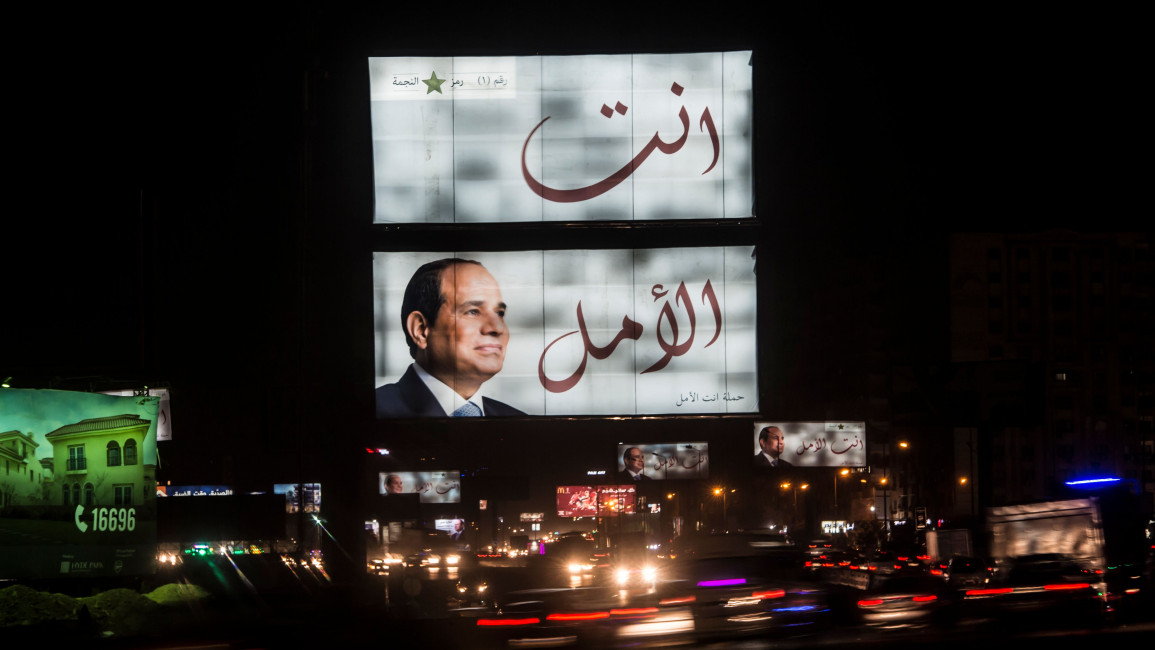Egyptians to cast votes for 2024 presidential elections as economic crisis worsens
Egyptian registered voters are expected to cast their ballots domestically in the presidential elections from 10 – 12 December at 9376 polling stations nationwide amid an unforgiving economic crisis triggered by socioeconomic mismanagement and Israel's war on neighbouring Gaza.
A total of four candidates are running for the country’s most influential public post. Other than Sisi, Farid Zahran, head of the opposition Social Democratic Party, Abdel-Sanad Yamama, head of the country's oldest liberal party Al-Wafd, and Hazem Omar, head of the People's Republican Party will run for the country's most prestigious political post.
The National Elections Authority (NEA) has permitted 24 embassies, 67 diplomats, 220 international observers, 22,340 local ones, and 68 local organisations to monitor the vote initially expected in 2024 but brought forward a few months earlier.
NEA has also granted access to 4,218 media personnel from different outlets locally and abroad to cover the vote.
Citizens aged 18 or above are eligible to vote. Eligible voters inside and outside the country surpassed 65 of a population of over 105 million.
The NEA allocated subcommittees inside polling stations for senior citizens and people with disabilities with the necessary guidelines, provided posters to assist voters with hearing disabilities, and designated braille paper ballots for the visually impaired ones.
Each candidate has an electoral symbol: incumbent President Abdel Fattah al-Sisi, seeking a third term in office, chose the star, while Zahran selected the sun, Yamama picked the palm tree, and Omar got the sign of the ladder.
Egyptian expatriates cast their votes earlier this week at 137 Egyptian embassies and consulates in 121 countries worldwide. The voter turnover abroad has not been officially declared yet.
The final result will be released on 18 December if no run-off is required, although it is a foregone conclusion for most Egyptians after previous polls have given improbable majorities for Sisi and marked by the detention of rival candidates.
Two presidential hopefuls had earlier withdrawn from the race for not meeting the required conditions, including Ahmed Tantawi, ex-MP and journalist, and Gameela Ismail, the Al-Dostour party chairwoman and a former journalist.
Tantawi has been facing a criminal trial along with 22 of his campaigners for allegedly circulating unauthorised printed forms of endorsement for the elections, among other charges.
The local currency, the pound, has lost over 50 per cent of its value against the US dollar, leading the basic commodities to be out of the reach of ordinary Egyptians in a country primarily dependent on importation rather than local production.
The situation has been exacerbated by alleged corruption and an eight-year borrowing spree, which has seen the state spend money on "white elephant" projects such as the New Administrative Capital and road expansions.
Over the past months, the government has begun selling state assets to wealthy Gulf nations, including army-owned firms, to attract foreign currency and liberate the economy from state control, a significant demand of the US$3 million loan programme signed with the International Monetary Fund (IMF).



